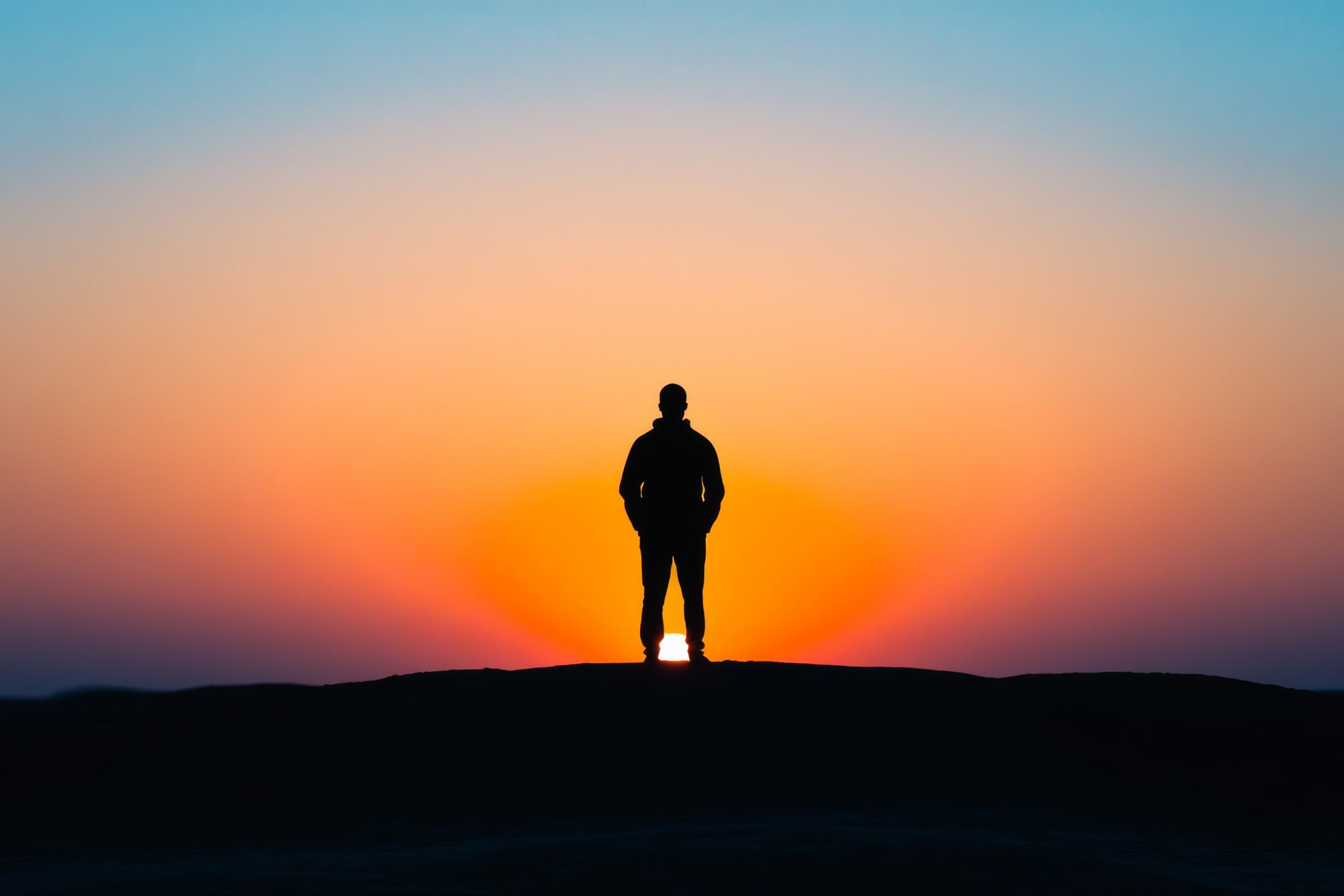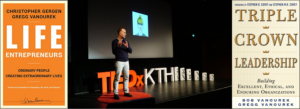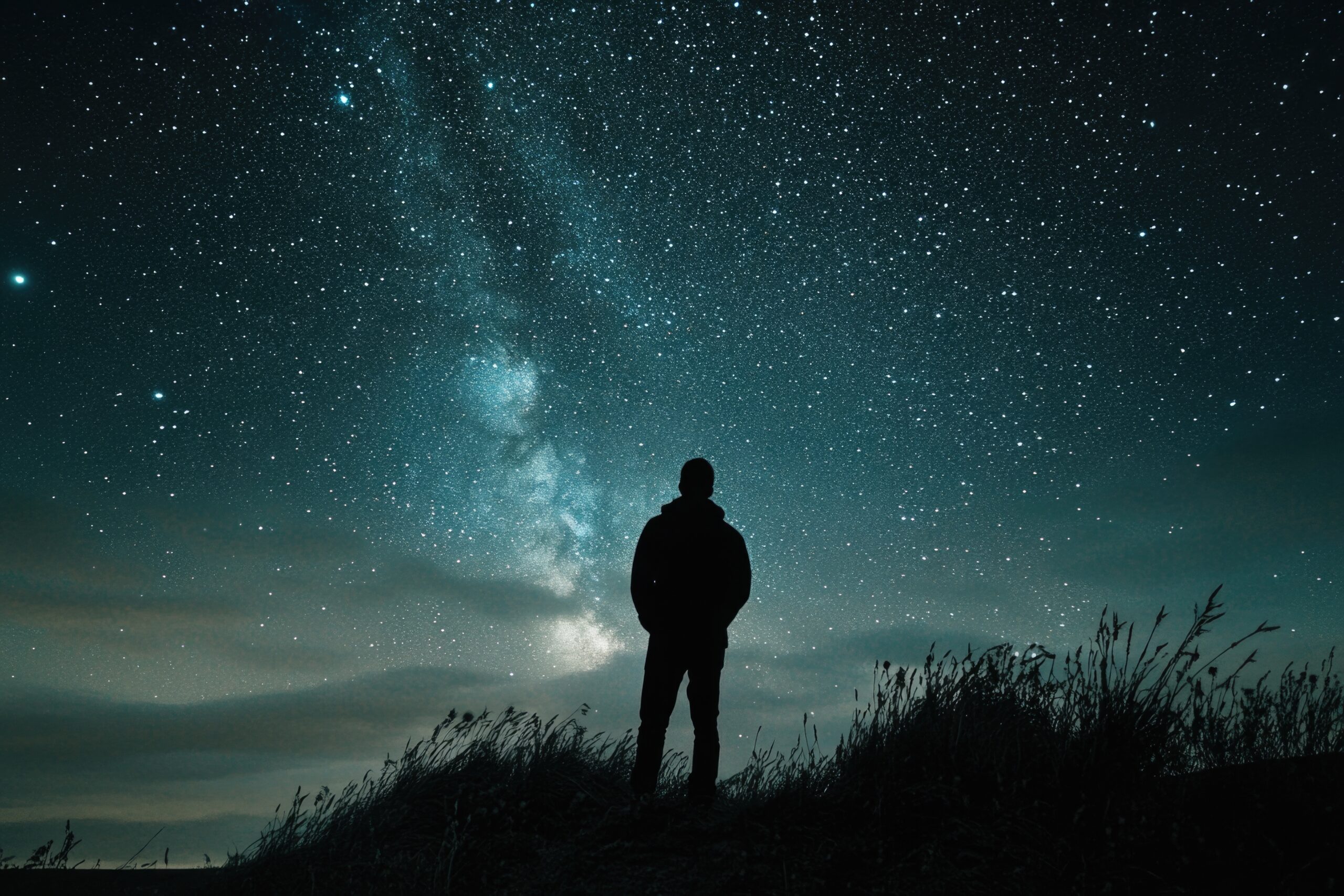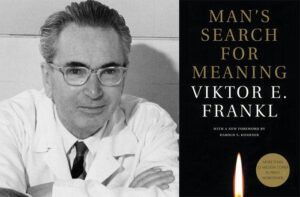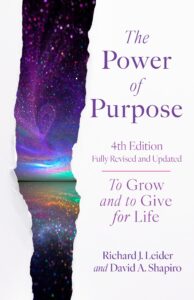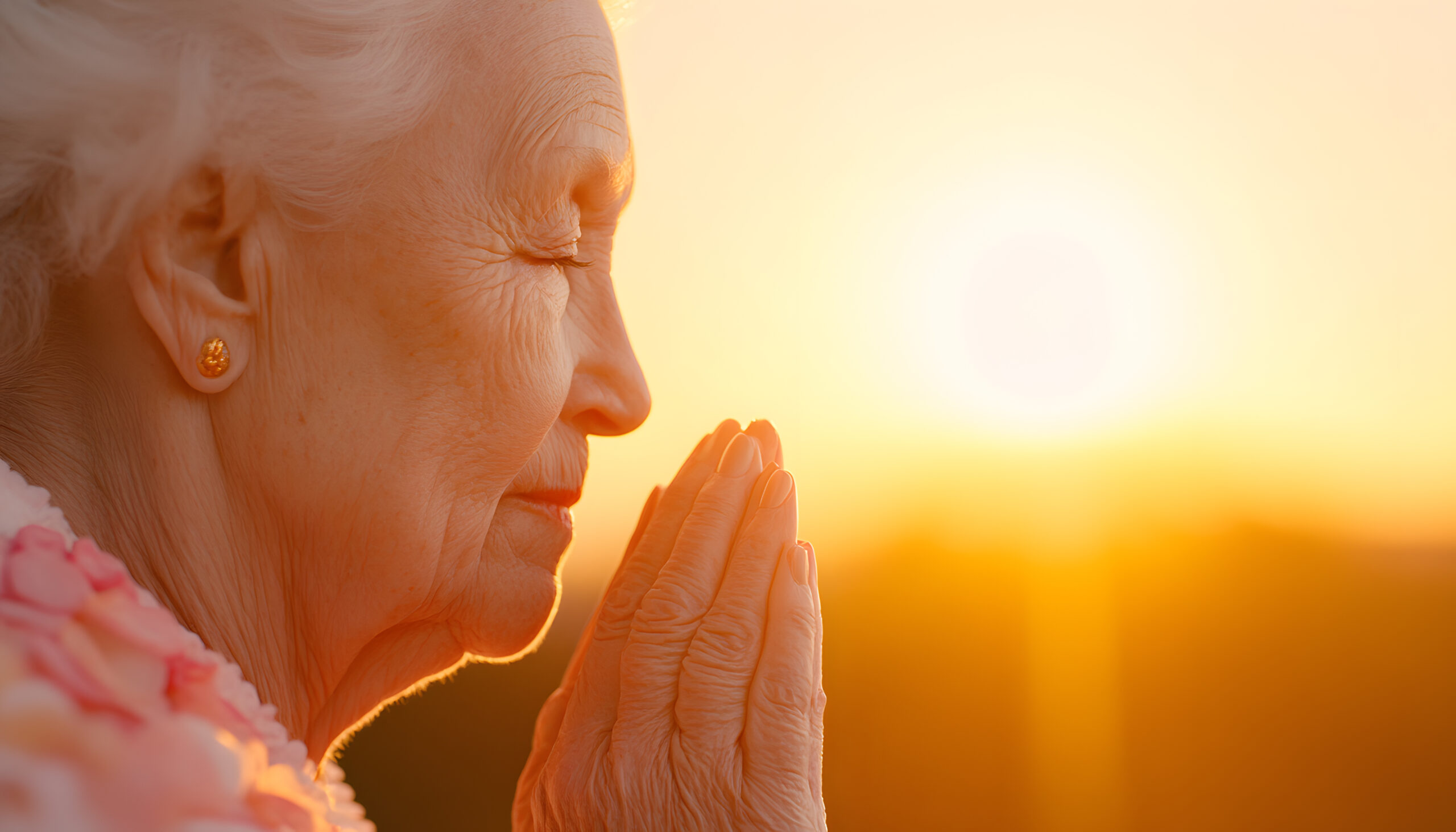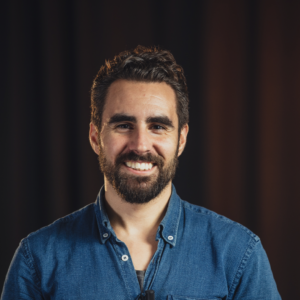Article Summary:
How spirituality and the good life are related, including the benefits of having a spiritual practice and examples of it.
+++
We all want to live a good life, but are we living in such a way as to make it likely? In many cases, the cultural influences around us aren’t helping. Think about it.
How many of us feel anxious and stressed much of the time? To what degree are we influenced by cultural messages and forces related to consumerism and materialism, status and ego, fear and greed, manipulation and division? How many of us feel time-starved and struggle with numbing or workaholism? These are common traps, and they take us away from a life we’ll be proud of.
“The disastrous feature of our civilization is that it is far more developed materially than spiritually. Its balance is disturbed.”
-Jean-Paul Sartre, French novelist and philosopher
When we focus on material circumstances, what happens when things change for the worse, as they’re wont to do? What happens when we’re shaken up with a health scare, relationship wound, or job loss? Do we really want to let our happiness depend solely on how things are going in our life, given that change is inevitable and that we all experience ups and downs regularly?
Enter spirituality. To some, it’s a loaded word, because it comes with baggage. But to many, it’s a powerful centering practice that adds depth, richness, and meaning to their lives, whether through prayer, worship, meditation, or other means.
Those who avoid spirituality for whatever reason may want to give it a second look, because it can be an important and powerful part of human experience.
“If a man is to live, he must be all alive, body, soul, mind, heart, spirit.”
-Thomas Merton, American Trappist monk, theologian, mystic, and social activist
What Is Spirituality?
Part of the problem is that there’s no widely accepted definition of spirituality, and many people conflate it with religion or dogma. We can think of it very simply as having to do with the human spirit, as opposed to material things. Here are some ways to think about it:
- “Spirituality is the measure of how willing we are to allow grace—some power greater than ourselves—to enter our lives and guide us along our way.” -Mastin Kipp, author of Daily Love: Growing with Grace
- “Spirituality is the process of living out a set of deeply held personal values, of honoring a presence greater than ourselves.” -Peter Block, author
- “Spirituality for me is recognizing that I am connected to the energy of all creation, that I am a part of it and it is always a part of me. Whatever label or word we use to describe ‘it’ doesn’t matter. Words are completely inadequate.” -Oprah Winfrey
Many people view spirituality as an age-old quest for inner peace and liberation, for awakening and enlightenment. It can include a search for self-transcendence—or rising above and beyond our ego (what some people call “ego death”).
Spirituality tends to involve asking fundamental questions (e.g., Who am I? Where do I come from? What’s my place in this vast universe? Is there a higher power? What, if anything, gives life meaning?). For many, it entails a recognition of our interconnectedness, and perhaps a quest to reach a higher level of consciousness or experience a sense of oneness with all.
Spiritual routines can range from daily practices to weekly services to personal prayer or faith. They tend to evolve as we age, grow, and have different life experiences.
For some, spirituality is about faith and forgiveness, or ministry and service, or peace and joy. For others, it’s about a search for meaning and purpose, appreciation of truth and beauty, or reverence of the sacred. It can entail connecting with nature, the cosmos, or the divine. And for some people, it’s about mystery, miracles, and revelations—or deeply held aspirations for heaven or nirvana. For most, compassion and love are at the heart of it.
Paul Anderson, University of Minnesota professor emeritus, noted in a scholarly article that the word “spirit” comes from the Latin word spiritus, meaning “breath,” and is defined as “the vital principle or animating force traditionally believed to be within living beings; one’s essential nature.” The definition of the word “soul,” Anderson wrote, is comparable: “The animating and vital principle in the human being, credited with the faculties of thought, action, and emotion.”
Author and social forecaster Patricia Aburdene noted five hallmarks of spirituality: meaning or purpose, compassion, consciousness, service, and wellbeing. According to her, “The quest for spirituality is the greatest megatrend of our era.”
“We suffer when we don’t find ways to allow the concerns of the soul to manifest into our lives.”
-Rabbi Mordecai Finley
The Difference between Spirituality and Religion
Some people equate religion and spirituality, but that’s a mistake. They’re related but not the same. Here’s how the Dalai Lama described it:
“Religion I take to be concerned with faith in the claims of one faith tradition or another, an aspect of which is the acceptance of some form of heaven or nirvana. Connected with this are religious teachings or dogma, ritual prayer, and so on. Spirituality I take to be concerned with those qualities of the human spirit—such as love and compassion, patience, tolerance, forgiveness, contentment, a sense of responsibility, a sense of harmony—which brings happiness to both self and others.”
-Tenzin Gyatso, the 14th Dalai Lama, in Ethics for the New Millennium
It’s been said that religion is an institution while spirituality is an experience. The way many people think about spirituality today often includes a sharper break from traditional religious institutions than in the past, and spirituality sometimes comes with an interesting blend of things (e.g., humanistic psychology and mystical traditions, or yoga and workplace wellness).
“Every religion is the product of the conceptual mind attempting to describe the mystery.”
-Ram Dass, psychologist and spiritual teacher
The Benefits of Having a Spiritual Practice in Our Lives
Spiritual practice—and living in accordance with deeper truths and our highest values—can transform our lives by bringing us a sense of unity, interconnectedness, awe, mystery, abundance, eternity, unboundedness, lucidity, tranquility, liberation, transcendence, flow, and presence.
“The spiritual life is not a special career, involving abstraction from the world of things. It is a part of every man’s life; and until he has realized it, he is not a complete human being, has not entered into possession of all his powers.”
-Evelyn Underhill, English Anglo-Catholic writer and pacifist
A deep and lasting spiritual practice can help us realize that we’re whole regardless of the circumstances we happen to find ourselves in—and that we don’t need anything from anyone or the world to be and feel whole. A healthy spiritual practice can:
- be a source of hope and comfort in hard times
- provide a sense of meaning
- give us inner peace
- enhance our ability to cope with anxiety and stress as well as with difficult conditions or experiences
- give us a state of expanded awareness and a more pure form of consciousness
- lead to a clearer and more accurate understanding the nature of the world and universe as it really is, not as we’re conditioned to view it
- give us a better sense of perspective and help us look beyond ourselves and our petty preoccupations and concerns
- help us make sense of our life experiences and tribulations
- help us tap into our inner strength and resilience
- connect us with a spiritual community that provides not only solace and support but also companionship and joy
- help us discover our purpose and core values—and build them into our daily lives
- help us stop reacting so negatively to external events and stop being triggered by the same people and situations over and over
- help us drop the yoke of judgment—of constantly judging ourselves and others
- enhance our happiness and fulfillment
- fill us with a deep and lasting joy
“…scientists have found, again and again, that those with a spiritual practice or who follow religious beliefs tend to be happier than those who don’t. Study after study has found that religious people tend to be less depressed and less anxious than nonbelievers, better able to handle the vicissitudes of life than nonbelievers. A 2015 survey by researchers at the London School of Economics and the Erasmus University Medical Center in the Netherlands found that participating in a religious organization was the only social activity associated with sustained happiness—even more than volunteering for a charity, taking educational courses, or participating in a political or community organization. It’s as if a sense of spirituality and an active, social religious practice were an effective vaccine against the virus of unhappiness.”
-Bryan Walsh, “Does Spirituality Make You Happy?” TIME, August 7, 2017
Examples of Spiritual Practices
Some people have never been exposed to spiritual practices, so they don’t know where to begin. Others may have had negative experiences with religious institutions (often involving shame or guilt) that they wish to avoid. So, it’s important to understand our options. Here are some common spiritual practices:
- Praying
- Worshipping at a religious service
- Meditating
- Experiencing nature—even just walking and being present with the sights and sounds around us—and savoring it
- Reading things that engage our heart and soul
- Creating things (via art, music, writing, film, dance, etc.)
- Being in community with others where we feel each other’s presence, engage in deep dialogue with trust and vulnerability, and avoid judging or trying to fix each other. (Author Parker Palmer notes that “inner work, though it’s a deeply personal matter, is not necessarily a private matter: inner work can be helped along by community.”)
- Serving others and giving back
- Engaging in spiritual contemplation (e.g., reflection on the divine)
- Practicing yoga
- Fasting
- Journaling
- Chanting
- Practicing silence and/or solitude
- Engaging in rituals (e.g., christening, bar mitzvah) or services (e.g., funerals)
- Embarking on a spiritual retreat or pilgrimage
Spirituality and Connection
Connection and connectedness are fundamental aspects of spirituality. In her book, The Gifts of Imperfection, researcher Brene Brown writes, “The heart of spirituality is connection.” To her, spirituality is “recognizing and celebrating that we are all inextricably connected to each other by a power greater than all of us, and that our connection to that power and to one another is grounded in love and compassion. Practicing spirituality brings a sense of perspective, meaning, and purpose to our lives.”
Martin Buber, an Austrian-Israeli philosopher, once observed that “When two people relate to each other authentically and humanly, God is the electricity that surges between them.” “True compassion,” wrote Buddhist teacher Pema Chödrön, “does not come from wanting to help out those less fortunate than ourselves but from realizing our kinship with all beings.”
“We’re all just walking each other home.”
-Ram Dass, psychologist and spiritual teacher
Spirituality and Ego
One of the challenges with modern living is that, if we’re not careful, we can get to caught in our ego, which causes us to focus excessively on things like material possessions, image, or success—all of which lead only to fleeting pleasure for most. In this way, our ego keeps us from living from our heart and soul.
In his book, Reinventing the Body, Resurrecting the Soul, spiritual teacher Deepak Chopra distinguishes between the nature of the ego and the soul. The ego, he writes, tends to be rejecting, critical, opposing, clinging, agitated, resentful, selfish, conflicted, and judgmental. By contrast, the soul is accepting, approving, cooperating, detached, calm, forgiving, selfless, peaceful, and nonjudgmental. He notes that the ego and soul have two very different visions of fulfillment. See the table below.
|
The ego’s vision of fulfillment:
|
The soul’s vision of fulfillment:
|
| I have everything I need to be comfortable. |
I am everything I need. |
| I am serene because bad things can’t come near me. |
I am secure because I have nothing to fear in myself. |
| Through hard work, anything can be achieved. |
The flow of life’s abundance brings me everything. |
| I measure myself by my accomplishments. |
I do not measure myself by any external standard. |
| I win much more often than I lose. |
Giving is more important than winning. |
| I have a strong self-image. |
I have no self-image; I am beyond images. |
| Because I’m attractive, I win the attention of the opposite sex. |
Other people are attracted to me as soul to soul. |
| When I find the perfect love, it will be on my terms. |
I can find perfect love, because I have discovered it first in myself. |
A key part of spirituality is living more from our soul and less from our ego.
“When the ego dies, the soul awakes.”
-Mahatma Gandhi, Indian lawyer and transformational leader
Conclusion
For many people, spirituality is an essential aspect of living a good life. There are many different spiritual traditions and practices. For many of us, a disciplined spiritual practice can be powerful and transformative as we take the focus off ourselves, give thanks, stand in reverence, and come back to our true nature, wholeness, and divine source.
Reflection Questions
- Are you too caught up in the hustle and bustle of modern life?
- Do you have a spiritual practice that enriches your life?
- What more will you do to live from your heart and feed your soul?
Tools for You
Related Articles
Postscript: Inspirations on Spirituality
- “Little by little, wean yourself. This is the gist of what I have to say. From an embryo whose nourishment comes in the blood, move to an infant drinking milk, to a child on solid food, to a searcher after wisdom, to a hunter of invisible game.” -Rumi, 13th century poet and Sufi mystic
- “We are not human beings having a spiritual experience. We are spiritual beings having a human experience.” -Pierre Teilhard de Chardin, French priest and scientist
- “But you are not your bank account, or your ambition. You’re not the cold clay lump you leave behind when you die. You’re not your collection of walking personality disorders. You are Spirit, you are love, and even though it is hard to believe sometimes, you are free. You’re here to love, and be loved, freely.” -Anne Lamott, writer, teacher, and political activist
- “The ultimate source of happiness is within us. Not money, not power, not status. Some of my friends are billionaires, but they are very unhappy people. Power and money fail to bring inner peace. Outward attainment will not bring real inner joyfulness. We must look inside.” -Tenzin Gyatso, 14th Dalai Lama
- “One of our problems today is that we are not well acquainted with the literature of the spirit. We’re interested in the news of the day and the problems of the hour…. When you get to be older, and the concerns of the day have all been attended to, and you turn to the inner life—well, if you don’t know where it is or what it is, you’ll be sorry.” -Joseph Campbell, The Power of Myth
- “Our souls are not hungry for fame, comfort, wealth, or power. Our souls are hungry for meaning, for the sense that we have figured out how to live so that our lives matter, so that the world will be at least a little bit different for our having passed through it.” -Harold Kushner, rabbi, author, and lecturer
- “As we become more obsessed with succeeding… we lose touch with our souls and disappear into our roles.” -Parker Palmer, A Hidden Wholeness
- “Everyone has a calling, which is the small, unsettling voice from deep within our souls, an inner urge, which hounds us to live out our purpose in a certain way. A calling is a concern of the spirit. Since a calling implies that someone calls, my belief is that the called is God.” -Dave Wondra, executive coach
- “Do not lay up for yourselves treasures on earth, where moth and rust destroy and where thieves break in and steal; but lay up for yourselves treasures in heaven, where neither moth nor rust destroys and where thieves do not break in and steal.” -Matthew 6:19-20
- “God takes our willingness and leads us mysteriously down the path where our deepest longings will finally be met in relationship with him and others.” -John Burke, founder and lead pastor of Gateway Church
- “The deepest desire of our hearts is for union with God. God created us for union with himself: This is the original purpose of our lives.” -Brennan Manning, author and priest
- “We are already one. But we imagine that we are not. We have to recover our original unity.” -Thomas Merton, American Trappist monk, theologian, mystic, and social activist
- “Fulfillment is not a matter of self-improvement. It involves a shift away from the ego’s agenda, turning from externals to the inner world. The soul holds out a kind of happiness that isn’t dependent on whether conditions outside are good or bad.” -Deepak Chopra, spiritual teacher and author
- “…our purpose for being alive is fulfilled by moving more and more deeply into our spiritual hearts and experiencing the presence of love.” -H. Ronald Hulnick and Mary R. Hulnick, Loyalty to Your Soul
- “And be not conformed to this world: but be ye transformed by the renewing of your mind, that ye may prove what is that good, and acceptable, and perfect, will of God.” -Romans 12:2, King James version
- “My religion consists of a humble admiration for the Superior Spirit who reveals Himself in the slight details we are able to perceive with our frail and feeble minds….” / “There has to be something behind things, something deeply hidden.” -Albert Einstein, German-born theoretical physicist
- “The first gulp from the glass of natural sciences will make you an atheist, but at the bottom of the glass, God is waiting.” -Warner Heisenberg, German theoretical physicist
- “The God of the Bible is also the God of the genome. He can be worshiped in the cathedral or the laboratory. His creation is majestic, awesome, intricate, and beautiful.” -Francis Collins, The Language of God: A Scientist Presents Evidence for Belief
- “Amidst all the mysteries by which we are surrounded, nothing is more certain than that we are in the presence of an Infinite and Eternal Energy from which all things proceed.” -Herbert Spencer, English philosopher and psychologist
- “Invoked or not invoked, God is present.” Vocatus atque non vocatus, Deus aderit. (Latin inscription over the entrance to Carl Jung’s home in Switzerland)
- “God does not die on the day when we cease to believe in a personal deity, but we die on the day when our lives cease to be illumined by the steady radiance, renewed daily, of a wonder, the source of which is beyond all reason.” -Dag Hammarskjöld, Swedish diplomat
- “And then the knowledge comes to me that I have space within me for a second, timeless, larger life.” -Rainer Maria Rilke, Austrian poet and novelist
- “Man’s aim in life is not to add to his material possessions, but his predominant calling is to come nearer his Maker.” -Mahatma Gandhi, Indian lawyer and transformational leader
- “…the kingdom of God is within you.” -Jesus Christ to his disciples in Luke 17:21
- “…spiritual truth is diametrically opposed to the values of our contemporary culture and the way it conditions people to behave…. The collective disease of humanity is that people are so engrossed in what happens, so hypnotized by the world of fluctuating forms, so absorbed in the content of their lives, they have forgotten the essence, that which is beyond content, beyond form, beyond thought. They are so consumed by time that they have forgotten eternity, which is their origin, their home, their destiny.” -Eckhart Tolle, spiritual teacher and author
- “Human history is the long terrible story of man trying to find something other than God which will make him happy.” -C.S. Lewis, British scholar, writer, and lay theologian
- “…underneath the level of physical appearances and separate forms, you are one with all that is.” -Eckhart Tolle, The Power of Now
- “Be who God meant you to be and you will set the world on fire.” -St. Catherine of Alexandria, princess, scholar, and Christian saint
- “Joy is the most infallible sign of the presence of God.” -Pierre Teilhard de Chardin, French priest and scientist
++++++++++++++++++++++++++++++
Gregg Vanourek is a writer, teacher, TEDx speaker, and coach on personal development and leadership. He is co-author of three books, including LIFE Entrepreneurs: Ordinary People Creating Extraordinary Lives (a manifesto for integrating our life and work with purpose, passion, and contribution) and Triple Crown Leadership: Building Excellent, Ethical, and Enduring Organizations (a winner of the International Book Awards). Check out his Crafting Your Life & Work online course or get his monthly newsletter. If you found value in this article, please forward it to a friend. Every little bit helps!

